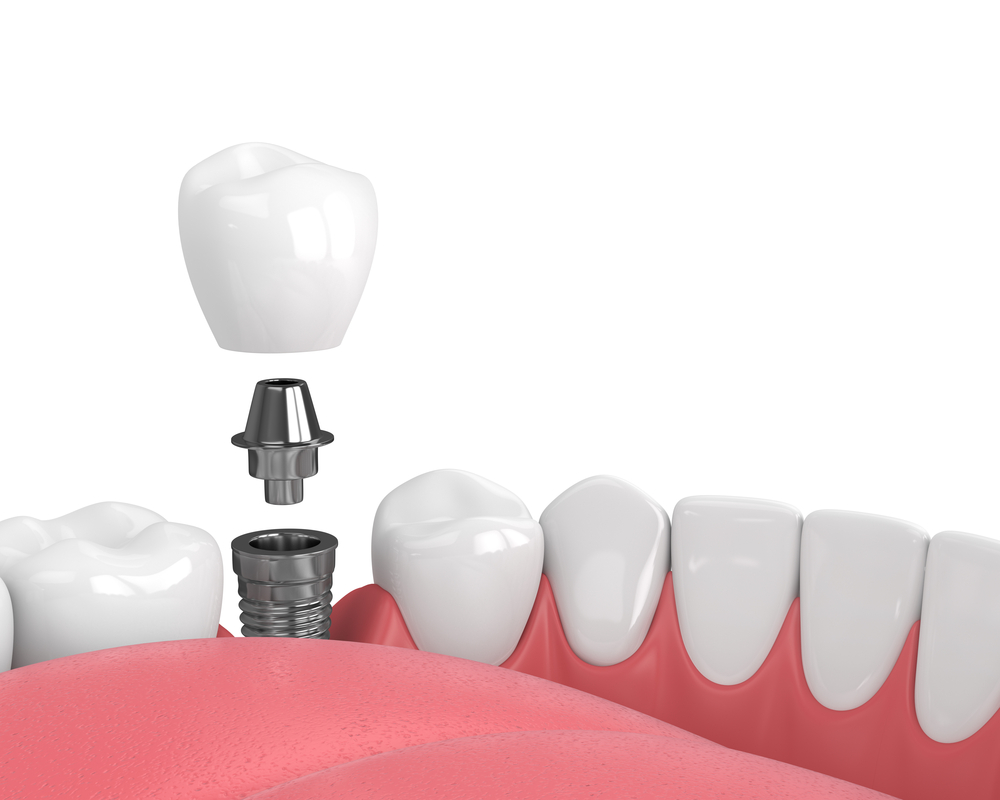A Brief History of Tooth Replacement
Tooth loss is nothing new, and people have always searched for ways to restore their smile when something happens. Today's dental solutions are amazingly comfortable and reliable. But before sophisticated...

Recovery time from dental implant surgery can vary from patient to patient. Factors including the individual case, the number of teeth affected, and how a patient manages their recovery process are all factors that should be taken into consideration.
In simple dental implant placement cases where no bone grafting is necessary, most don’t experience any post-operative discomfort or swelling. However, in most cases, after implant placement surgery, minor swelling and discomfort can be expected for a few days.
Being prepared for dental implant surgery as possible is vital to your recovery. Here’s what to expect during your recovery and what you can do to help the healing process along.
Immediately following your dental implant placement surgery, it’s unlikely to experience any significant pain or discomfort due to your procedure’s numbing and sedation. Your doctor will likely prescribe you prescription medication to help with pain and discomfort as you heal at home.
You will likely feel some moderate pain and discomfort near the surgical site for at least 72 hours. Placing an implant involves cutting into bone and gum tissue, so this type of discomfort is expected. You may also notice bleeding, swelling, and bruising of the area surrounding the implant.
Avoid any strenuous physical activity for 3 days following your surgery. Being gentle on your body will give your mouth the time it needs to heal. Focus on a diet consisting of mostly soft foods while your implant heals and avoid chewing on any hard foods near the implant site.
Pain and discomfort should begin to subside as your implant continues to heal. Additionally, any bleeding you experience should stop after about 3 days. It’s typical for the implant site to look still bruised and swollen for 5-7 days. Once most of the initial tenderness has been reduced, you can begin to gently brush the implant site with a soft-bristled toothbrush to clean the area. Soft foods are still recommended for about a week. Physical activity, including exercise, can be resumed after about 5-7 days.
One week after your surgery, you should no longer be experiencing significant pain or discomfort surrounding the implant site. Roughly 2 weeks after your procedure, your implant should be healed, and you should feel little-to-no tenderness surrounding the area.
If you begin to notice an increase in pain, discomfort, swelling, or bleeding near your implant after 2 weeks, contact your dentist right away. These are indications of infection, or can be a sign that your implant is not healing correctly. Always keep any followup appointments to have your implant checked for proper healing.
Once the initial dental implant healing process has taken place, the implant will continue to integrate (bond or fuse) with the jaw bone. In some cases, the implant can be loaded immediately, but crown or bridge work will typically be performed roughly 2-6 months after implant placement. Your healing timeline will depend on your case, your bone’s quality, and whether any grafting was required before implant placement.
Every patient is different, so it can be challenging to determine precisely how long recovery will take after having a dental implant placed. Additionally, if you had more than one implant placed, healing may take longer. It’s typical for an implant to take about 3-6 months before it bonds fully with your jaw bone.
If you need assistance with dental implant aftercare or are concerned that your implant isn’t healing correctly, contact Aubrey Baudean DDS today.